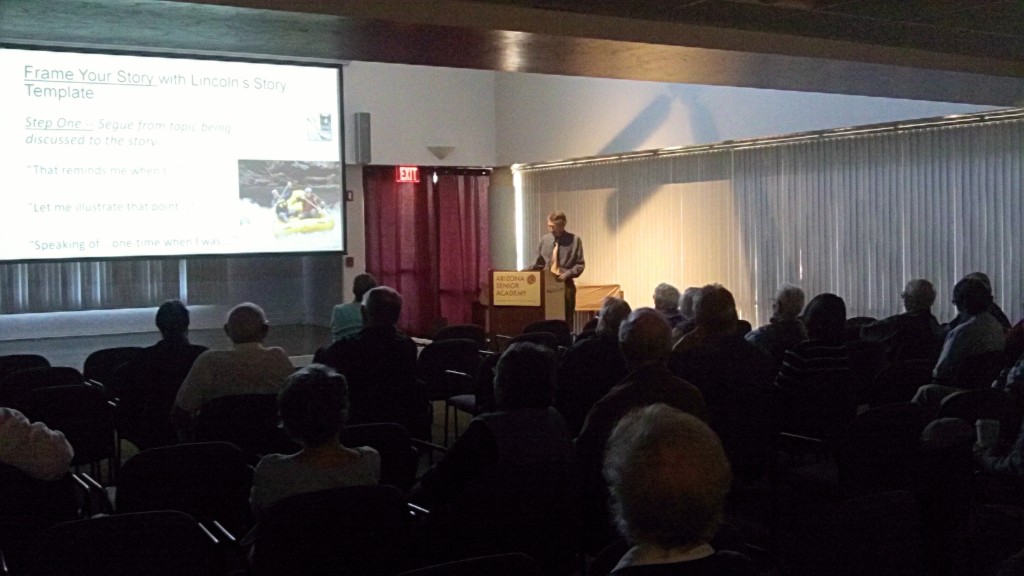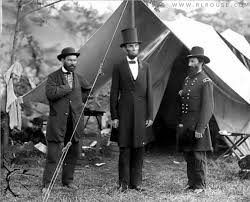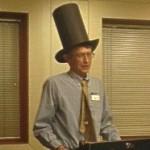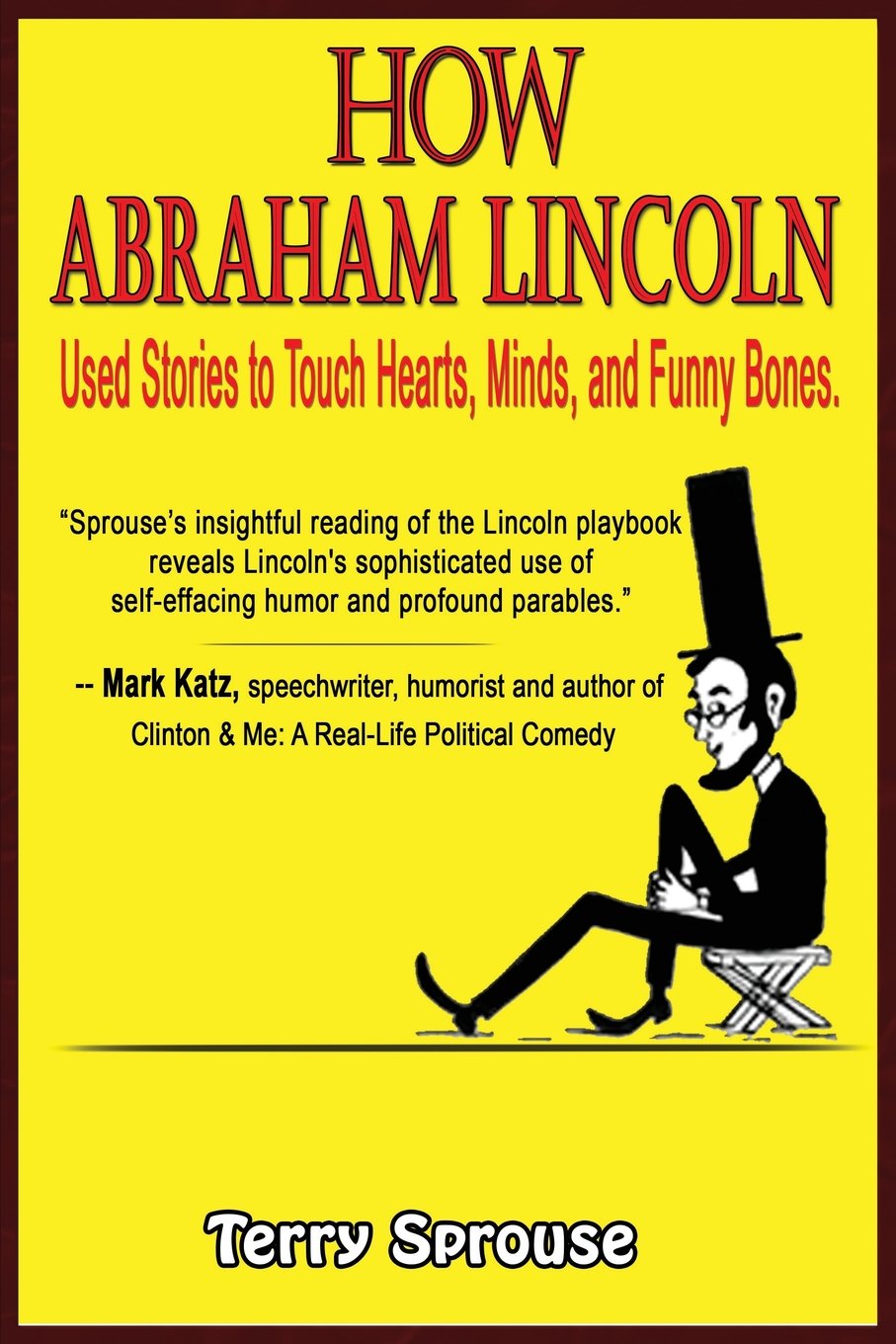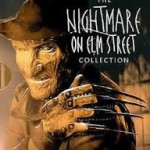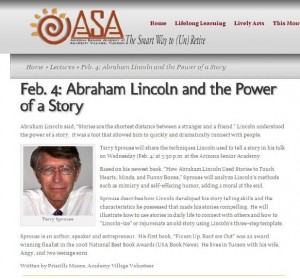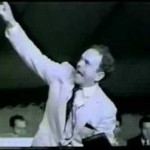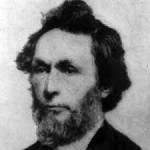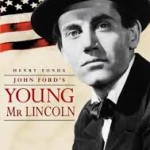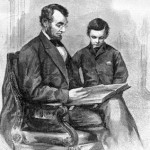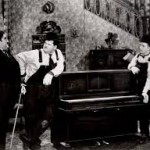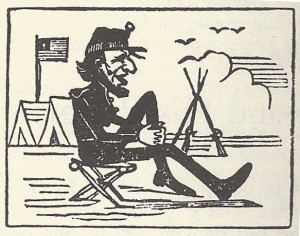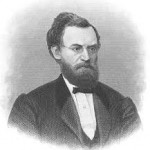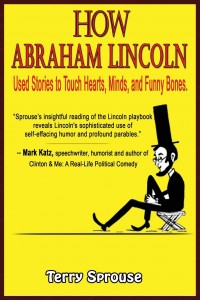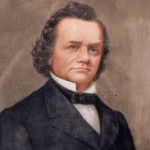
Senator Stephen Douglas
Stephen Douglas actually feared the storytelling skills of Abraham Lincoln.
When he opposed Lincoln in the 1858 election for Senate, Douglas said: “Every one of his stories seems like a whack upon my back. When he begins to tell a story, I feel that I am overmatched.”
Stories, like pictures, speak a thousand words and, for leaders, stories are powerful ways to connect with other people, illustrate a point and win loyalty.
Many leaders lead by sheer force or the threat of force, like a boss that I once worked for. Every day I had this sinking feeling in my gut, like Haystack Calhoun at a Weight Watchers meeting. To lighten the mood, we nicknamed the boss “sparky” because she apparently combed her hair by sticking a finger into the electrical outlet.

“Sparky”
In contrast, Lincoln led by persuasion and inspiration. He showed deep respect for the dignity of each individual. The mechanism that Lincoln used to persuade and win people’s loyalty was thru a simple and unassuming story, most often told in the course of personal conversation.
Carl Schurz, a Union General who first met Lincoln while riding on a train, commented on Lincoln’s uncanny ability to attract followers, in stating,
” I soon felt as if I had known him all my life and we had very long been close friends. He interspersed our conversation with all sorts of quaint stories, each of which had a witty point applicable to the subject at hand.”
Famed author and black leader Frederick Douglass said of his first encounter with Lincoln,
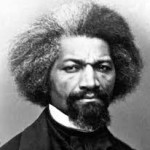
Frederick Douglass
“From the first moment of my interview with him I seemed to myself to have been acquainted with him for years.”
The Woodman’s Daughter
Virginian W.C. Reeves advised President Lincoln to appease the South and let them have Fort Sumter and all other government property in the Southern states without a fight.
Lincoln said, “That reminds me of the fable of the woodman’s daughter”
“A lion,” said the President, “was very much in love with a woodman’s daughter. The fair maid referred him to her father. The lion applied for the girl’s hand.”
The father replied, “Your teeth are too long.”
The lion went to a dentist and had them extracted. Returning, he asked for the bride.
“No,” said the woodman, “your claws are too long.”
Going back to the dentist, he had them drawn. Then he returned to claim his bride, and the woodsman, seeing that he was unarmed beat out his brains.”
Lincoln concluded, “May it not be so with me, if I give up all that is asked to appease the South?”
Lick Any Man in the Crowd
Many people felt that the Gen. Ulysses S. Grant be removed from command because He drank too much, and his troops suffered too many casualties. Mr. Lincoln could night afford to lose the services of so valuable a soldier. The press nicknamed him “Unconditional Surrender” Grant.
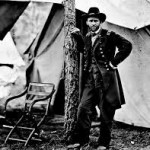
Grant
When southern armies would request to meet with Grant to discuss the terms of surrender, he would say “There are no terms! Only unconditional surrender!” because he would never negotiate terms of surrender with the rebels
Lincoln would tell the naysayers:
“That reminds me of a story,
“Out in my State of Illinois there was a man nominated for sheriff of the county. He was a good man for the office, brave, determined and honest, but he could not make a speech to save his life.
His friends implored him to come out and state his convictions and principles.
He finally relented to make a speech, advanced to the front and faced the crowd.
‘Feller Citizens, ‘I’m not a speakin’ man; I ain’t no orator, an’ I never stood up before a lot of people in my life before.
I’m not goin’ to make no speech, ‘xcept to say that I can lick any man in the crowd!’ ”
The beauty of these stories are that Lincoln told them in the first place. He could have just argued until he was blue in the face. However, no amount of reasoning could have persuaded people the way his stores did.
Lincoln said, “I reckon I have the popular reputation of being a storyteller, but it is not the story itself, but its purpose, that interests me. I often avoid a long and useless discussion or a laborious explanation by a short story that illustrates my point of view.”
Connect With Hearts
Stories allow leaders the great virtue of being able to laugh at themselves, and connect with people’s hearts.
One story that Lincoln was fond of telling dealt with two Quaker ladies comparing Lincoln and Confederate President Jefferson Davies.
Quaker story.
“I think Jefferson will succeed,” said one.
“Why does thee think so?” asked the second.
“Because Jefferson is a praying man.”
“And so in Abraham a praying man.”
“Yes, but the Lord will think Abraham is joking.”
Lincoln’s Empathy
Lincoln’s proclivity to tell stories was related to the empathy he felt for people and the series of personal tragedies that followed him throughout life.
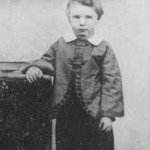
Willie Lincoln
The strongest blow may have been when his eleven-year-old son, Willie, died of typhoid fever, while Lincoln was president. Willie had the same magnetic personality of his father and he was Lincoln’s favorite. They were intimates, often seen hand in hand. Staggering under the blow of the taking from him of his child, Lincoln said, “My poor boy, he was too good for this earth.”
Even in this darkest hour, Lincoln relied on stories to see him through. He confided to a minister, “A good story is medicine to my bones.”
Paint a Picture
Remember, next time you need to make a friend, illustrate a point, or win loyalty, – replace talking, with stories. And you’ll paint a picture that speaks a thousand words.
Upcoming Presentations/Activities:
June 5th, 2015. Pascua Yaqui Youth Career Academy. Tucson, AZ.
Other Lincoln Articles:





